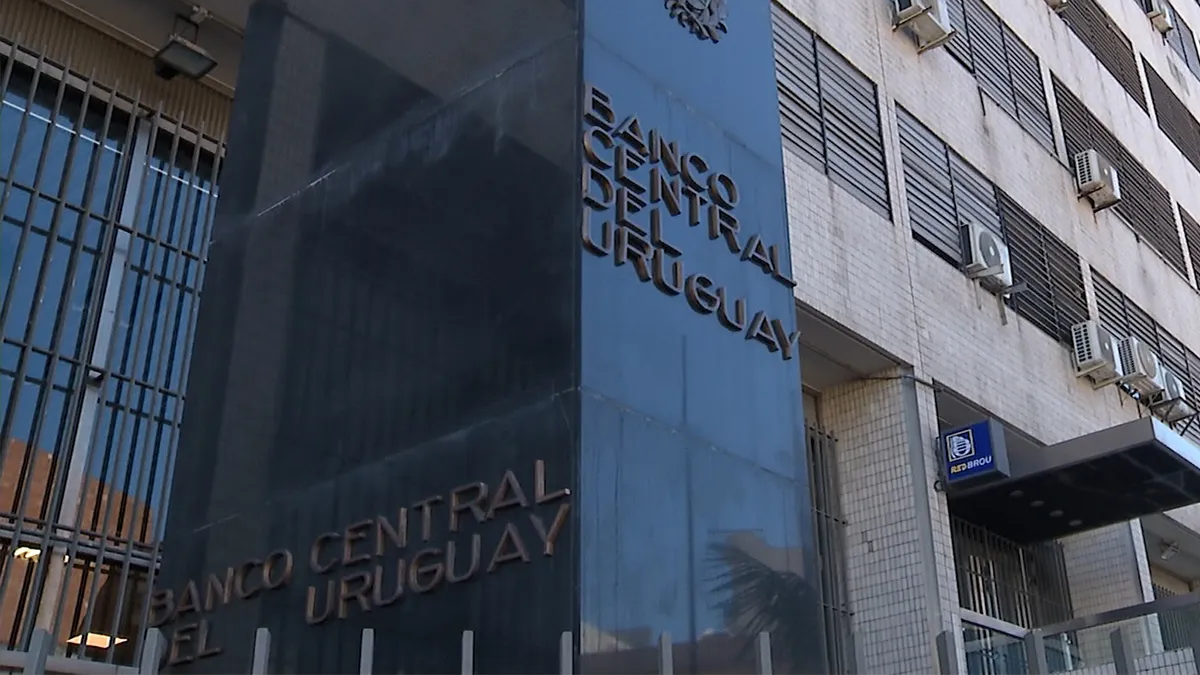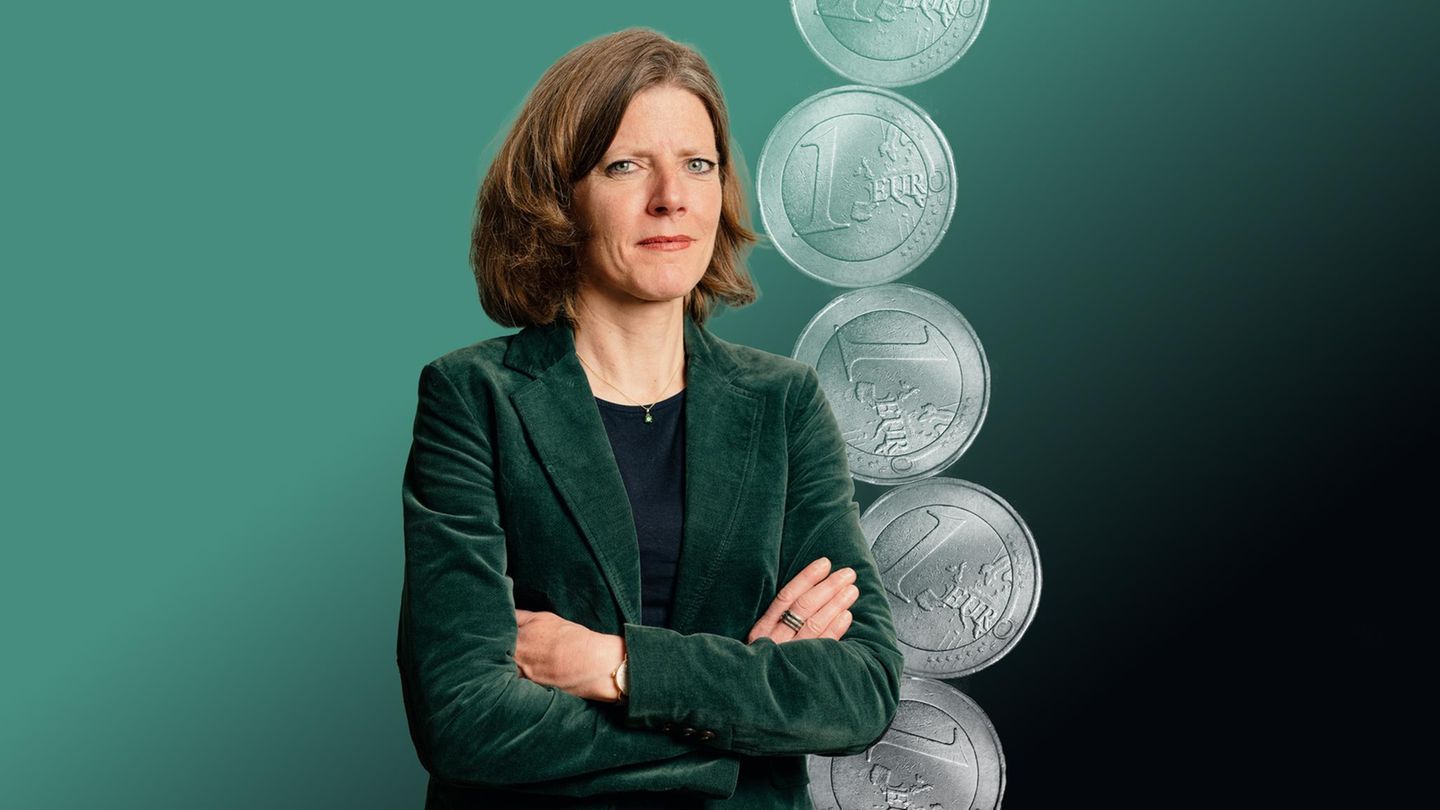The decision of Central Bank of Uruguay (BCU) moving forward with a cut in the reference interest rates days ago was partly a surprise but, also, an announcement expected by the markets and export sectors: surprise at the level of decline, which was 0.5% when the expectation was an adjustment of no more than 25 basis points; but waited for the advance that the president himself Luis Lacalle Pou had made in the previous week on a “sign” what would happen regarding the exchange delay.
The measure was, in general, well received, although another aspect caught attention: the intervention of the political system in the monetary politics.
The level of autonomy of the BCU It is a discussion that, from time to time, returns to the center of the economic debate. Therefore, the fact that President Lacalle Pou so clearly advanced a decision to monetary politics generated varied repercussions. There are those who were in favor of political action in a context of growing unrest on the part of a key productive and economic sector for the development of the country such as the agro; and who once again expressed their disagreement with the way some decisions were made.
Political intervention or not, the crux of the matter
“I share the resolution, it is well taken,” he expressed in this regard. Angel Urraburu, president of the Montevideo Stock Exchangein dialogue with Ambit. “It seems to me that economic policy decisions do not always have to be based exclusively on economics, sometimes they have to be based on economics and politics. It was necessary to incorporate a component political to give a signal that the government is concerned about the lack of competitiveness”, considered.
CAF Arbeleche – Labat.jpg
Luis Lacalle Pou would have participated in the decision to cut the interest rate along with the head of the MEF, Azucena Arbeleche, and the president of the BCU, Diego Labat.
Likewise, the financial analyst said that the measure came at a necessary time since the export unions “brought up the issue of exchange delay in the electoral campaign.” Although he does not understand it as a lack of independence by the BCU, quality that the monetary authority must maintain: “The political signal is not partisan politics,” he clarified.
This, however, is not the general opinion among economists. About, Giuliano Cantisani, senior consultant CPA Ferreremaintained that “it is not necessarily incorrect that other objectives in addition to inflation be taken into account, but it does imply a change with respect to the priorities and objectives that the current management of the “BCU.”
“The same could be commented regarding the fact that the president has in some way advanced the decision that the president was going to make. Monetary Policy Committee (Copom) a few days later,” he added, and considered that, although “they are options on how to conduct the economic policy”, it contradicts “with the position of having a more independent central bank.”
For the former mayor of Financial Regulation of the BCU, José Lycander, The fact that the president announced “the good news” shows that “there is no autonomy at all and that people were convinced that rates had to be lowered and the situation was taken political advantage of, or that it really was because of the criticism.”
“Due to the proximity of the elections and the pressures of some export lobbies, added to the criticism of the opposition that they attribute the bad name to monetary policy exchange delay and the intervention of the President of the Republic fuels doubts about what the true objective was” behind the rate cut, he explained to Ambit the economist, firm defender that the independence of the BCU is one of the great pending issues of the Uruguayan institutionality.
According to Licandro, monetary policy in Uruguay is “field of political dispute”: “The parties believe that monetary policy is part of the menu of things they can do and undo,” he noted, adding that Copom’s recent decision was “tinged with politics.” “When the partisan political discussion begins in the elections, the technical subtleties They go to the second term, and that is not good for monetary policy,” he added.
A “signal” towards inflation expectations: positive or negative?
As President Lacalle Pou announced, the cut in the MPR from 9% to 8.5% was a “sign”, but not only towards agriculture, in terms of measures to address the misalignment of the exchange rate; but also towards the inflation expectations. Economists agree on this, although they differ on the effects of said “signal”.
For Urraburu, understanding that it was a political sign rather than monetary policy to shore up the value of the dollar —while the evolution of the US currency in the local market does not depend exclusively on interest rates in national currency, and is not even significantly affected by it—; Copom’s decision “affects expectations.”
“It is a good sign to combat inflation due to the fact that agents’ expectations are setting it above 6%,” said the president of the Montevideo Stock Exchange, for whom lowering rates despite having said that there would be no movements was a way to ensure operators that inflation is controlled within the target range and will continue to be so.
Licandro, on the contrary, considered that the BCU measure “was a “risky move” in terms of the credibility of the Central Bank in the formation of forward prices and, precisely, the expectations of the agents regarding this, since “the game is not won, rather it is going down on the scoreboard.”
“Taking monetary policy to an instance that from a technical point of view is no longer even neutral, is expansive, It is a risky measure, on the one hand, because the aggregate demand is going to play against; and, on the other hand, the agents are watching what you are doing and if still no one is convinced and you start to loosen monetary policyit is risky for expectations,” argued the economist.
Likewise, Licandro pointed out that “in an election year where the elections are even and it is known that the lack of autonomy changes the integration of the board of directors and monetary policy, it is quite reasonable that agents begin to look more forward than backward.” “And those who look closely at these issues are beginning to see that monetary uncertainty”, he added.
Source: Ambito




